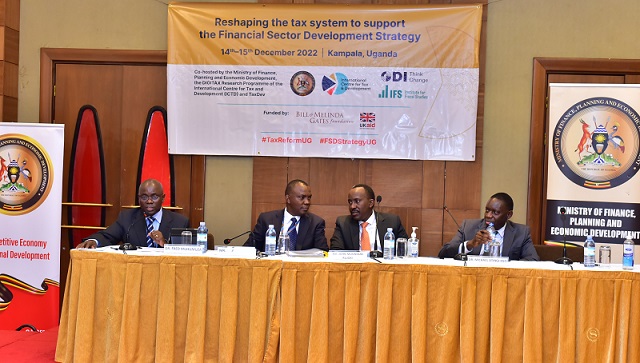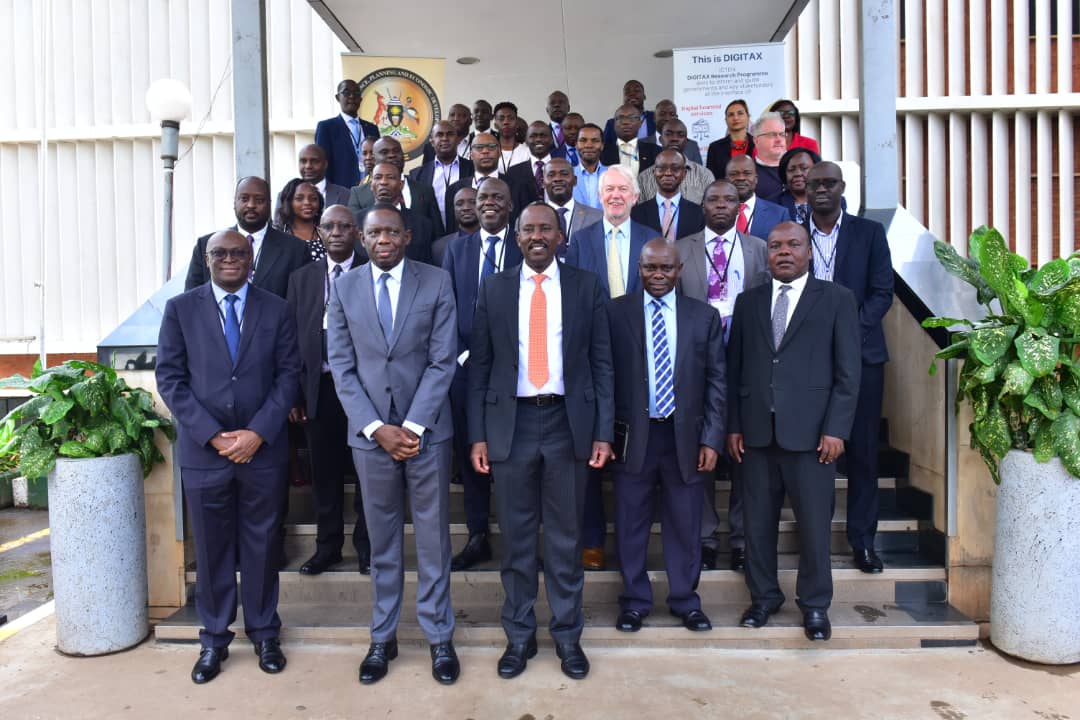New developments in the financial sector have forced a rethink of how the sector should be developed to ensure it helps build a thriving economy that works for every Ugandan, according to Moses Kagwa, the Director of Economic Affairs at the Ministry of Finance, Planning and Economic Development. Kaggwa, who spoke during the conference on reshaping the tax system to support the financial sector development strategy, on behalf of the Permanent Secretary and Secretary to the Treasury, Ramathan Goobi, underlined the importance of the financial sector to any economy and hence its need to keep with the times. “The financial sector fosters growth by mobilizing and pooling savings for the allocation of capital in productive investment. It ensures that resources go where they are needed and all of society is included. It is no surprise that countries with mature financial sectors enjoy stronger and more inclusive economic growth,” he said. He observed the government came up with a strategy, the Financial Sector Development Strategy (FSDS) to ensure the financial sector plays its central role in the planned transformation of the economy. The FSDS’s three strategic objectives are to ensure, financial services for all, financial services for markets, and financial services for growth. Under the strategy, the government has set a target of having up to 80 percent of Ugandans formally financially included by increasing the range of financial products, expanding delivery channels, improving financial education, and strengthening low-tier financial institutions.

18th Jan
New developments Rethinking financial Inclusion

In addition, the government wants to improve access to long-term finance as a way to help companies raise capital and help families overcome life cycle challenges. Under this plan government will be looking to develop the capital markets, introduce infrastructure and municipal bonds, increase insurance penetration and improve the environment for the issuance of corporate equity and debt. Strengthening innovation and supporting infrastructure is the third intervention envisioned under the strategy. This will help create an enabling environment for the development of the FinTech sector, and expand the coverage of the credit reference bureau and other relevant legal and policy frameworks required for the fast-changing sector. And finally, the strategy provides for interventions to ensure the sector inspires trust and is a pillar of the economy through improved regulatory and supervision capacity, compliance with international standards, and better coordination with domestic financial service providers. Kagwa also said improved consumer protection through improved consumer awareness and ensuring compliance with the Financial Consumer Protection Guidelines are key to driving financial inclusion. He also thanked the International Center for Tax and Development for a report on taxation in Uganda, which formed the basis of discussion at the conference. “That’s why we commissioned Dr. Christopher Wales to produce a report on “The taxation of the financial sector in Uganda”. Its remit was to identify opportunities to improve the design and function of the Uganda tax system, specifically as it relates to providers and users of conventional and digital financial services.”

